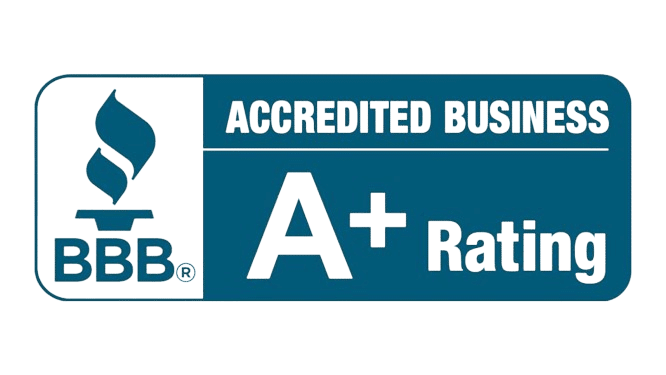Compare Auto Insurance Quotes
Find the best auto insurance policy for your needs with JG Wentworth marketplace. Compare quotes quickly and make informed decisions to protect your vehicle and wallet.


Proven Record of Customer Service





The average cost of car insurance in the United States is between $1,250 and $2,500 per year dependent on the amount of coverage. Car insurance has been increasing in recent years given a rise in claims, legal costs, car values, cost of repairs, and overall inflation.
However, the rate of your car insurance will depend on many factors, including age, driving history, location, types of coverage, amounts of coverage, and car make and model.

Driving history
Insurance companies assess risk based on past behavior, such as accidents, traffic violations, and claims history. Drivers with clean records typically qualify for lower rates, while those with accidents or violations may face higher premiums due to the increased perceived risk of future claims.
More severe infractions or multiple incidents can lead to even higher premiums or difficulty in obtaining coverage from some insurers.
Location
Location plays a crucial role in determining car insurance rates due to varying factors such as population density, traffic congestion, crime rates, and frequency of accidents in different areas.
Urban areas generally have higher rates due to increased traffic and greater risk of theft or vandalism, while rural areas typically have lower rates. State regulations, insurance laws, and regional weather patterns can also influence premiums, with some states consistently having higher average premiums than others.
Demographics
Demographics such as age, gender, marital status, occupation, and even credit score can impact car insurance rates. Younger drivers, especially teenagers, typically face higher premiums due to their lack of driving experience and statistically higher likelihood of accidents.
Additionally, male drivers generally pay more than females, as they tend to have higher accident rates. Married individuals often receive lower rates, as they are perceived as more responsible and statistically less likely to engage in risky driving behaviors.
Vehicle
Type of vehicle can significantly impact car insurance rates due to factors such as the vehicle's make, model, age, safety features, and repair costs.
Generally, vehicles with high safety ratings, lower repair costs, and lower likelihood of theft tend to have lower insurance premiums.
On the other hand, sports cars, luxury vehicles, and models with high-performance capabilities often come with higher insurance rates due to increased risk of accidents and theft, as well as higher repair costs. Newer vehicles may also have higher premiums due to their higher value and replacement costs.
Other factors
Other factors such as whether there are other drivers in your household and/or on your policy could impact rates. Combining drivers in the same household to one policy could provide discount benefits. However, having a teen driver on your policy could significantly increase your rate.
Similarly, many insurers offer discounts if you "bundle" policies such as including your homeowner insurance with your auto insurance.

There are many ways to get cheaper car insurance. Here are a few:
Take advantage of car insurance discounts
In addition to the policy bundling and multiple car discounts mentioned previously, many insurers will offer discounts for safe driving. Many insurers require a cell phone application to be installed and active while you are driving so they can monitor your driving behaviors. The insurer's then use this data to give you discounts on your rate.
Installing anti-theft devices in your car can often result in a discount. Devices such as alarm systems or tracking systems make vehicles harder to steal therefore reducing the cost to insure.
Many insurers offer loyalty discounts for customers that stay with them for an extended period of time. This allows the insurer more insight into your driving history, making you cheaper to insure.
Change your deductible
Changing your deductible, and certain policy options can have the biggest impact on your car insurance rate. Whether it is opting to pass some of the add-ons such as rental coverage, roadside assistance, comprehensive coverage, collision coverage, etc. If you opt to bypass or lessen the burden of some of these options, you can lower your rate.
Be careful however as lowering the coverage on some of these options does give you less protection and you may end up on the hook for more money in the event of a claim.
Compare car insurance rates
Comparing car insurance rates from multiple providers allows you to find the most competitive premiums for the coverage you need. By shopping around, you can identify potential discounts, promotions, and special offers that may not be available with your current insurer.
This process empowers you to make informed decisions about your coverage, potentially saving you hundreds of dollars annually on your car insurance premiums.
Featured Auto Insurance Articles
Does Car Insurance Transfer When You Trade In Your Car?
This article will cover everything you need to know about transferring or updating your car insurance when trading in your old vehicle for a new one. We'll explain the process, key factors that impact your rates, money-saving tips, and more.
Can You Insure a Car Without Registration?
For most people, having a car means freedom, convenience, and a critical part of their daily lives. However, owning a vehicle also comes with several legal responsibilities, including having it properly registered and insured. While regulations vary from state to state, there are some general principles that apply when it comes to insuring an unregistered vehicle.
How to Read and Understand Your Car Insurance Policy
Car insurance policies can often be dense and confusing, filled with jargon and legal language that can be difficult to decipher. However, understanding your car insurance policy is crucial to ensure that you have the coverage you need and to avoid any surprises when you need to make a claim. Here’s a step-by-step guide to help you read and understand your car insurance policy.
Common Car Insurance Myths Debunked
Car insurance is a necessity, but it is also surrounded by myths and misconceptions that can lead to confusion, misinformation, and sometimes even financial loss. Understanding what’s true and what isn’t can help you make better decisions about your insurance coverage, avoid unnecessary costs, and ensure that you’re fully protected on the road. In this article, we’ll debunk some of the most common car insurance myths, providing clarity on what really matters when it comes to insuring your vehicle.


